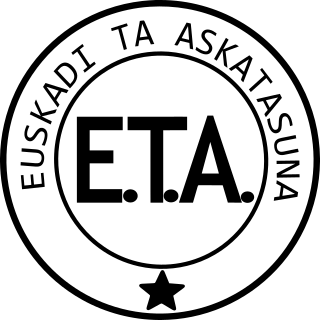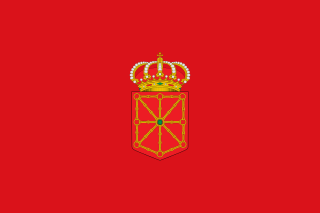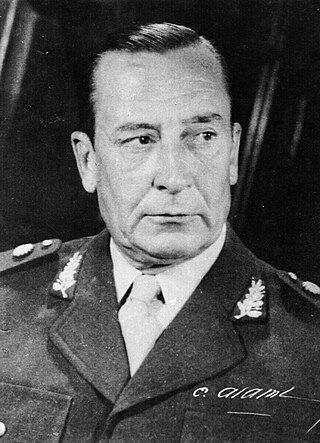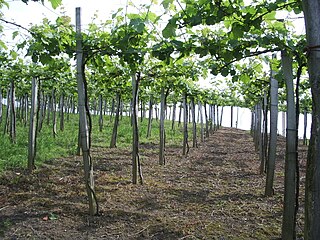
Basque is the only surviving descendant of the Paleo-European languages, originally called "lingua navarrorum", predating the arrival of speakers of the Indo-European languages that dominate the European continent today. Basque is spoken by the Basques and other residents of the Basque Country, a region that straddles the westernmost Pyrenees in adjacent parts of northern Spain and southwestern France. Basque is classified as a language isolate. The Basques are indigenous to and primarily inhabit the Basque Country. The Basque language is spoken by 806,000 Basques in all territories. Of these, 93.7% (756,000) are in the Spanish area of the Basque Country and the remaining 6.3% (50,000) are in the French portion.
The Basques are a Southwestern European ethnic group, characterised by the Basque language, a common culture and shared genetic ancestry to the ancient Vascones and Aquitanians. Basques are indigenous to, and primarily inhabit, an area traditionally known as the Basque Country —a region that is located around the western end of the Pyrenees on the coast of the Bay of Biscay and straddles parts of north-central Spain and south-western France.

ETA, an acronym for Euskadi Ta Askatasuna, was an armed Basque nationalist and far-left separatist organization in the Basque Country between 1959 and 2018, with its goal being independence for the region. The group was founded in 1959 during the era of Francoist Spain, and later evolved from a pacifist group promoting traditional Basque culture to a violent paramilitary group. It engaged in a campaign of bombings, assassinations, and kidnappings throughout Spain and especially the Southern Basque Country against the regime, which was highly centralised and hostile to the expression of non-Castilian minority identities. ETA was the main group within the Basque National Liberation Movement and was the most important Basque participant in the Basque conflict.

In Spain, an autonomous community is the first sub-national level of political and administrative division, created in accordance with the Spanish Constitution of 1978, with the aim of guaranteeing limited autonomy of the nationalities and regions that make up Spain.

Navarre, officially the Chartered Community of Navarre, is a landlocked foral autonomous community and province in northern Spain, bordering the Basque Autonomous Community, La Rioja, and Aragon in Spain and Nouvelle-Aquitaine in France. The capital city is Pamplona. The present-day province makes up the majority of the territory of the medieval Kingdom of Navarre, a long-standing Pyrenean kingdom that occupied lands on both sides of the western Pyrenees, with its northernmost part, Lower Navarre, located in the southwest corner of France.

Basque nationalism is a form of nationalism that asserts that Basques, an ethnic group indigenous to the western Pyrenees, are a nation and promotes the political unity of the Basques, today scattered between Spain and France. Since its inception in the late 19th century, Basque nationalism has included Basque independence movements.

Pedro Eugenio Aramburu Silveti was an Argentine Army general who was the dictator of Argentina from November 13, 1955, to May 1, 1958. He was a major figure behind the Revolución Libertadora, the military coup against Juan Perón in 1955. He was kidnapped by the left-wing organization Montoneros on May 29, 1970, and then murdered as part of retaliation. He had been involved in the June 1956 execution of Army General Juan José Valle—associated with the Peronist movement— and 26 Peronist militants, after a botched attempt to overthrow his regime.

The Basque Nationalist Party, officially Basque National Party in English, is a Basque nationalist and regionalist political party. The party is located in the centre of the political spectrum.

The Basque Country is the name given to the home of the Basque people. The Basque Country is located in the western Pyrenees, straddling the border between France and Spain on the coast of the Bay of Biscay.

Gipuzkoa is a province of Spain and a historical territory of the autonomous community of the Basque Country. Its capital city is Donostia-San Sebastián. Gipuzkoa shares borders with the French department of Pyrénées-Atlantiques at the northeast, with the province and autonomous community of Navarre at east, Biscay at west, Álava at southwest and the Bay of Biscay to its north. It is located at the easternmost extreme of the Cantabric Sea, in the Bay of Biscay. It has 66 kilometres of coast land.

Txakoli or chacolí is a slightly sparkling, very dry white wine with high acidity and low alcohol content produced in the Spanish Basque Country, Cantabria and northern Burgos in Spain. Further afield, Chile is also a minor producer.
The Basque Country national football team represents the Basque Country in football. It selects players from the Basque Country autonomous community, Navarre and the French Basque Country and is organised by the Basque Football Federation. It is not affiliated with FIFA or UEFA and therefore only allowed to play friendly matches against FIFA or non-FIFA affiliated teams.

Basque cuisine refers to the cuisine of the Basque Country and includes meats and fish grilled over hot coals, marmitako and lamb stews, cod, Tolosa bean dishes, paprikas from Lekeitio, pintxos, Idiazabal sheep's cheese, txakoli, and Basque cider.

Basque Country may refer to:

San Sebastián, officially known by the bilingual name Donostia / San Sebastián, is a city and municipality located in the Basque Autonomous Community, Spain. It lies on the coast of the Bay of Biscay, 20 km from the France–Spain border. The capital city of the province of Gipuzkoa, the municipality's population is 188,102 as of 2021, with its metropolitan area reaching 436,500 in 2010. Locals call themselves donostiarra (singular), both in Spanish and Basque. It is also a part of Basque Eurocity Bayonne-San Sebastián.

The Basque Autonomous Community [ A.C.] also officially called Euskadi [] is an autonomous community in northern Spain. It includes the Basque provinces of Araba, Bizkaia, and Gipuzkoa. It also surrounds an enclave called Treviño.
The 1990 Tour of the Basque Country was the 30th edition of the Tour of the Basque Country cycle race and was held from 2 April to 6 April 1990. The race started in Zestoa and finished at Barrendiola. The race was won by Julián Gorospe of the Banesto team.

José Manuel Ibar Azpiazu was a Spanish boxer, who became the EBU heavyweight champion in 1970 and 1971.
Arroa is a railway station in Zestoa, Basque Country, Spain. It is owned by Euskal Trenbide Sarea and operated by Euskotren. It lies on the Bilbao-San Sebastián line.
Gregorio Ameztoy Querejeta was a Filipino professional footballer who played as a midfielder for Gimnàstic de Tarragona in Spain.
















